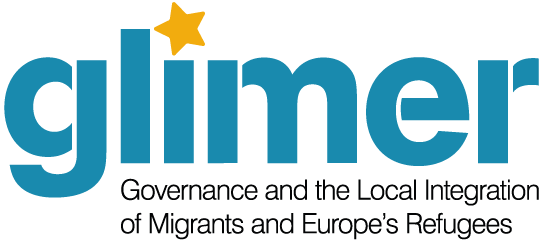“When you become a city that has to give hospitality to the experiences of trauma and torture, and become a world city – not one that has sent people out as traumatised bodies as happened from the clearances and the poverty of the 1930s in Glasgow – but actually starts to receive that back in the early 20th Century, then your narrative as a city has to change, and change is always a really tricky process.”
Glasgow
So we stood there, sometimes chanting, and already asking questions
I’d just handed the baby over to my partner after the breakfast shift last Thursday morning when a friend messaged me. Activists had tweeted that an immigration enforcement raid on Kenmure Street in Pollokshields was being blocked by local people. My friend lives on the other side of town, but I live round the corner.
The battle of Kenmure Street
Around 9.30am on Thursday 13 May I checked my phone for messages, as I was about to start making preparations for Eid dinner later that evening. One of the No Evictions Network activists had posted a photo of an immigration enforcement van in Kenmure Street in Pollokshields and said that he was going to investigate what was happening, and asked others in the network to come down to support him.
The role of asylum in processes of urban gentrification
In 2013, the organisers of the Glasgow 2014 Commonwealth Games announced that the demolition of Glasgow’s infamous Red Road flats would form the grand finale of the Games’ Opening Ceremony. Where had once been a symbol of Glasgow’s ’regeneration’ from its post-industrial past, they had more recently been known for their decline.
Reclaiming the local? Asylum accommodation provision in Scotland
Reports last week that local authorities participating in the Dispersal Scheme are considering withdrawing from the Scheme are alarming but perhaps not surprising. Dispersal is a programme run by the UK government to accommodate asylum seekers in locations across the UK on a no-choice basis. Since its implementation at the turn of the Millennium, it has attracted controversy, especially around issues relating to the housing of asylum seekers.
Serco evictions and asylum accommodation governance: The consequences of a reserved, neoliberal accommodation model for displaced migrants in Glasgow
On 29 July 2018, private asylum accommodation provider, Serco, announced that with one day’s notice, they would be changing the locks on up 300 residences occupied by asylum seekers whose applications had been refused by the Home Office. The decision has been met with shock and anger both by Glasgow City Council and by the third sector and community networks that support refugees in Glasgow.
